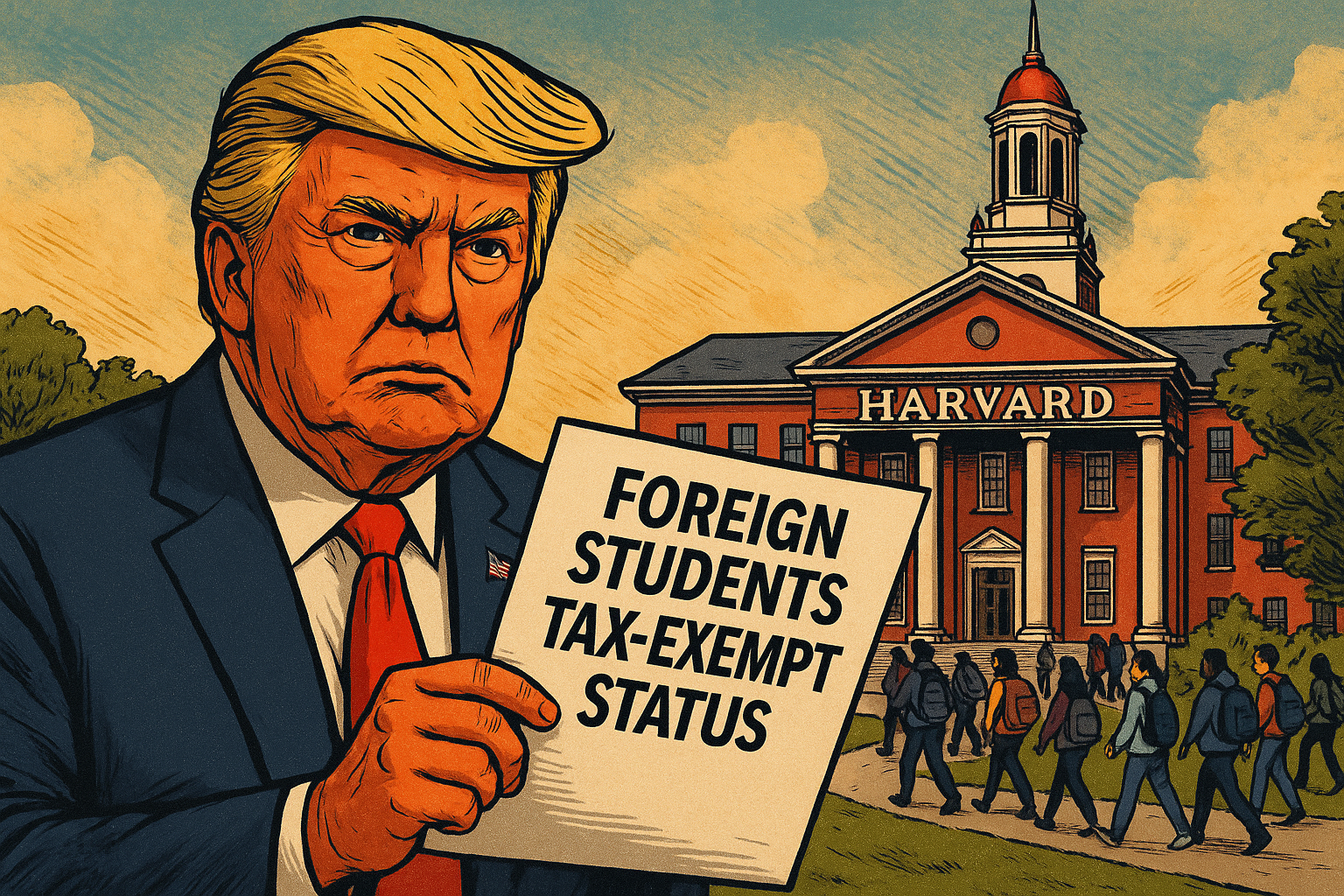
In a move that has left academia rattled and immigration advocates alarmed, President Donald Trump’s administration has launched a sweeping campaign targeting Harvard University, threatening its prestigious status and its long-standing support for international students. The trigger? An anonymous tip and an administrative misstep that sent tremors through the Ivy League and beyond.
The controversy began with a letter—a government-issued correspondence addressed to “Harvard International Student Office” that was reportedly sent in error by a newly appointed Department of Homeland Security (DHS) undersecretary. The letter, meant for internal circulation, contained phrasing interpreted by some as a veiled threat. “Verify all non-citizen enrolments. Institutions found shielding unqualified foreign nationals will be scrutinized for compliance and eligibility,” the letter read.
What followed was a swift domino effect. President Trump, who won election with a renewed mandate on tightening immigration and “protecting American institutions,” seized on the moment. “Universities are not safe havens for foreign interference,” he declared in a press briefing. “They must be held accountable.”
Harvard, with its large international student body and global network, became the first target.
Within days, the Internal Revenue Service (IRS) issued a notice reviewing Harvard’s tax-exempt status, citing “concerns over foreign donations, transparency, and compliance with American values.” Department of Education officials hinted at violations under Section 117, a rule requiring universities to report foreign gifts over $250,000. Simultaneously, a Senate subcommittee chaired by Trump-aligned legislators scheduled hearings titled “Universities and the Foreign Influence Crisis.”
Harvard’s administration responded with an uncharacteristically sharp statement: “This university will not be intimidated into compromising its values of openness, academic freedom, and international collaboration.”
The administration's pressure tactics ignited fears of a wider crackdown. Yale, Stanford, and MIT reported similar communications. Advocacy groups called it an orchestrated “Operation Ivory Wall”—a coordinated effort to remake elite institutions in the image of America First.
Legal scholars were quick to weigh in. While tax-exempt status can be revoked, it’s rarely done and only under extreme cases of abuse. “Targeting a university for who it admits or who funds it, especially if it’s foreign students, pushes constitutional limits,” said Professor Ellen Granger, a constitutional expert at Columbia Law School. “It’s First Amendment adjacent.”
Critics view the campaign as a calculated move by Trump to weaken institutions that traditionally lean liberal and support diversity. “This isn’t about compliance. It’s about chilling dissent and reshaping the intellectual climate,” said Joseph Kim, a policy analyst at the Center for Academic Liberty.
Supporters of the administration argue it’s high time for transparency. “We’ve allowed foreign governments to influence our top universities for too long,” said Senator Marcus Reid of Texas. “China, Qatar, and others have been funnelling money and ideas through these institutions unchecked.”
Yet the inclusion of students—many on legitimate academic visas—in this political tug-of-war has prompted backlash. International students contribute nearly $45 billion to the U.S. economy annually. They conduct cutting-edge research, enrich classroom discussions, and often remain to build companies and advance science. “They are not pawns,” tweeted Representative Linda Sanchez. “They are scholars.”
As lawsuits loom and hearings begin, the Trump administration’s push against Harvard may well redefine the landscape of American higher education. What was once a bastion of global intellectual exchange now stands at a legal and ideological crossroads.
Whether this gambit is about law, power, or legacy remains to be seen. But one thing is clear: in Trump’s second term, the ivory tower is no longer untouchable.

